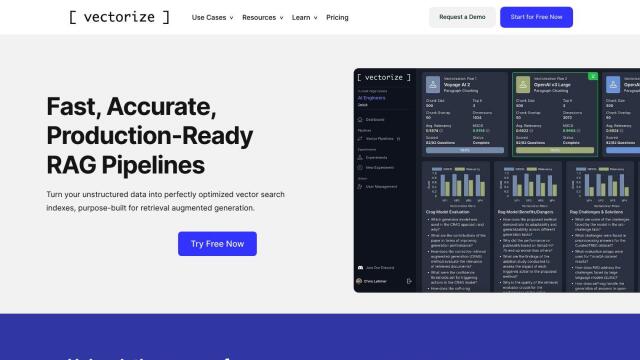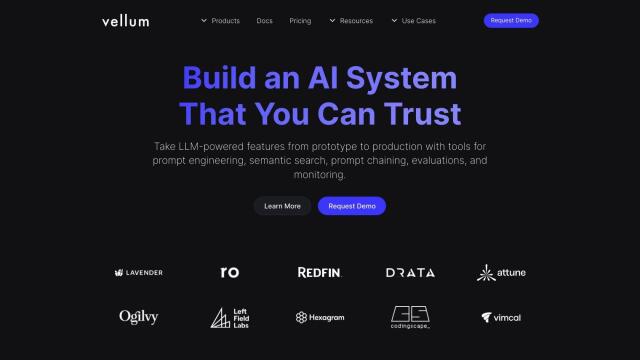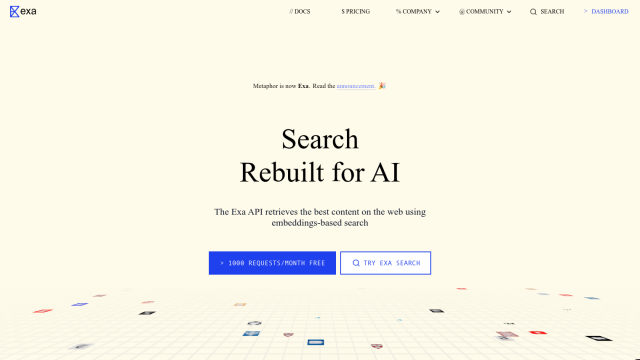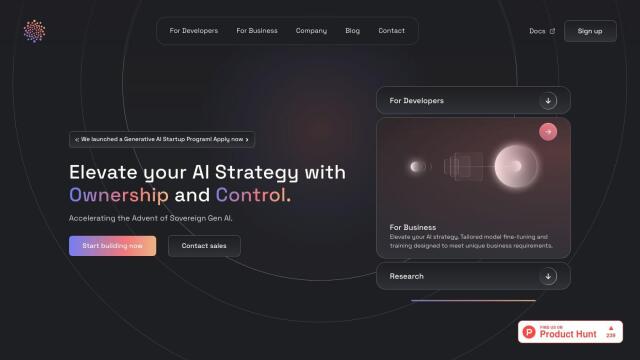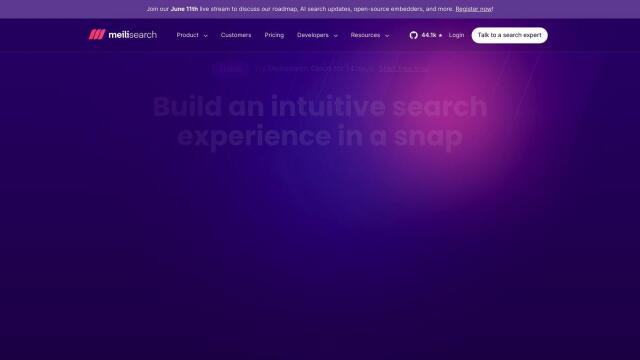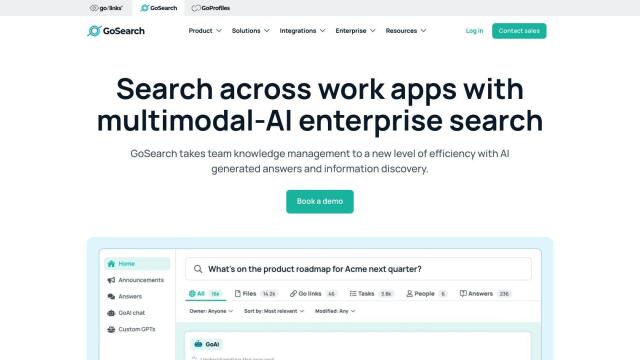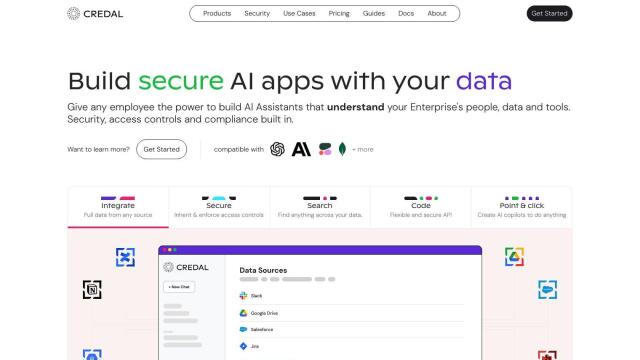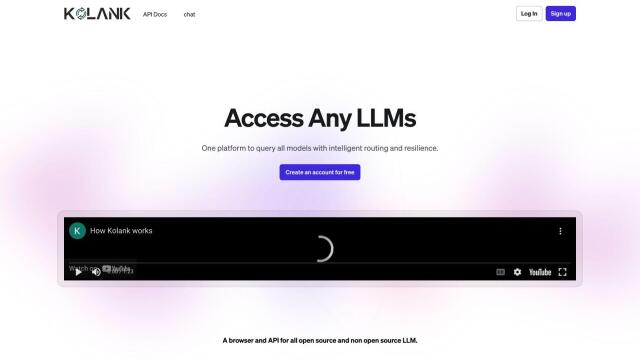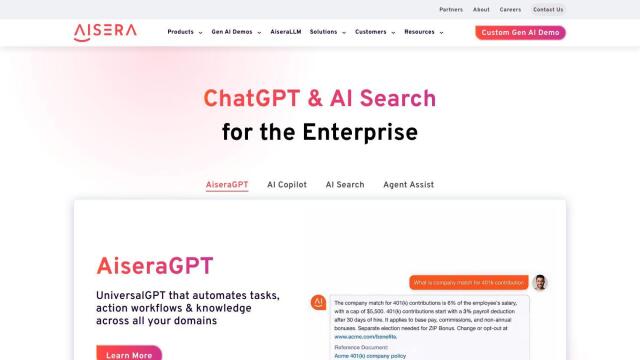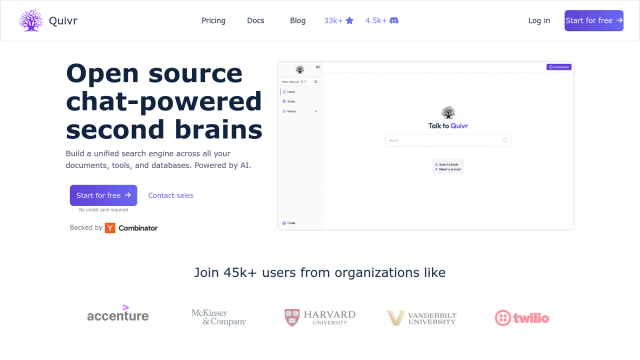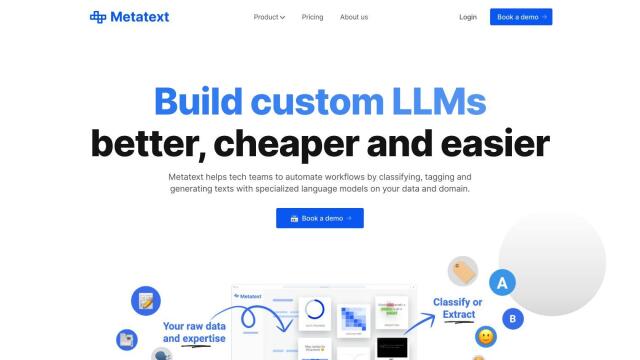Question: I'm looking for a solution that combines language models with ranking and relevance fine-tuning tools for advanced search capabilities.

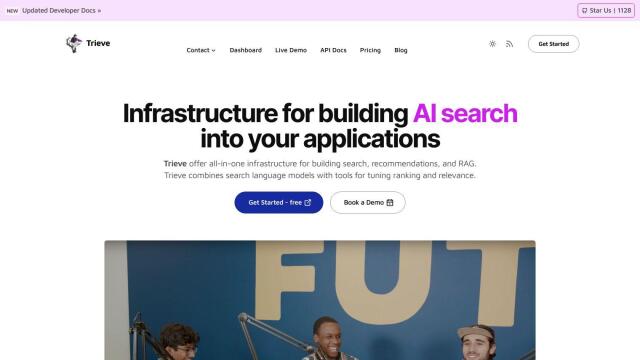
Trieve
If you want a solution that marries language models with ranking and relevance fine-tuning tools for more advanced search, Trieve is a top contender. This full-stack infrastructure is designed for building search, recommendations and RAG experiences. It includes private managed embedding models, SPLADE full-text neural search, semantic vector search and hybrid search. Trieve also supports merchandising relevance tuning, which makes it a good fit for use cases that need more search sophistication like date recency biasing and semantic search. It offers a variety of pricing tiers, including a free tier for noncommercial use.


Abacus.AI
Another contender is Abacus.AI, a platform that lets developers create and run applied AI agents and systems at large scale. It includes tools for fine tuning large language models, creating end-to-end RAG systems and combining multiple data sources. Abacus.AI offers predictive and analytical abilities, such as forecasting, anomaly detection and personalization, so it's good for automating complex workflows and optimizing business operations.

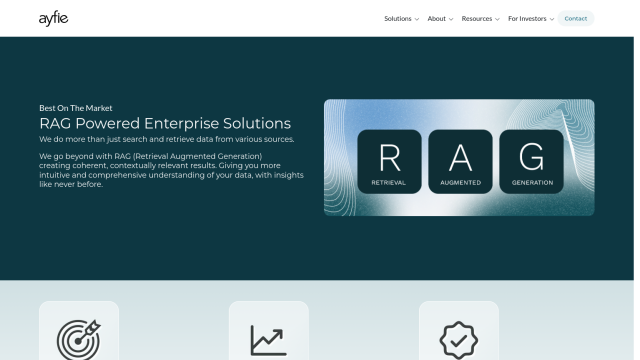
Ayfie
Ayfie also offers a comprehensive Retrieval Augmented Generation (RAG) solution that integrates with existing systems and a broad range of data sources. It offers real-time insights and richer data understanding through answers that are accurate. Ayfie offers flexible deployment options and advanced security features, including granular access control and preservation of document hierarchy and relationships.

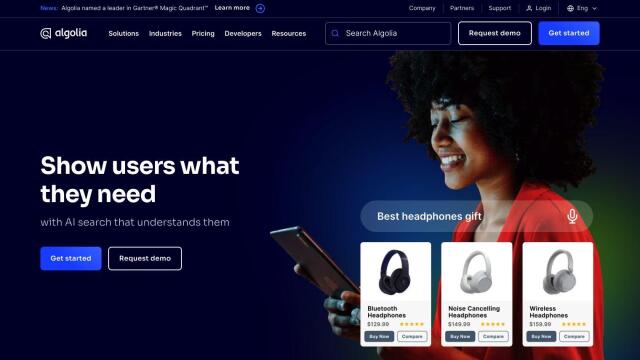
Algolia
Last, Algolia offers a powerful AI-powered search infrastructure for enterprises and developers. It combines keyword search with vector understanding and dynamic re-ranking based on user behavior and trends. Algolia's flexible pricing and abundant documentation make it a good fit for many industries and use cases, from enterprise search to mobile and app search. The platform offers fast, scalable and easy-to-use search experiences.



